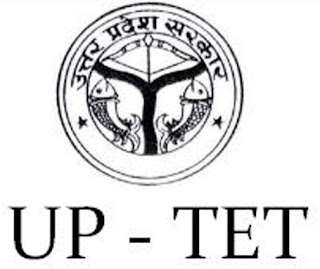UPTET Previous/Last Year Question Papers PDF with Answer Hindi, English
UPTET Previous/Last Year Question Papers
The organization had released a Uttar Pradesh Teacher
Eligibility Test vacancy notice to select eligible applicants for the posts of
class first to five/ six to eight. Lots of candidates had applied for the UPTET
vacancy advertisement. Eligible applicants who have applied for this vacancy
notice they can go via this web page to download the UPTET Previous/Last Year
Papers which are the most important for exam preparation. With the help of
UPTET Question Papers, eligible candidates will get an idea regarding exam of
the UPTET.
Therefore, candidates are needed to download the Uttar Pradesh Teacher Eligibility Test Model Papers & Sample Papers along with Solutions. Eligible candidates may open the Official Website of organization that is upbasiceduboard.gov.in for other Solved Papers in PDF.
Therefore, candidates are needed to download the Uttar Pradesh Teacher Eligibility Test Model Papers & Sample Papers along with Solutions. Eligible candidates may open the Official Website of organization that is upbasiceduboard.gov.in for other Solved Papers in PDF.
Below on this page we
have few important & easy steps for you by which you can download Uttar
Pradesh Teacher Eligibility Test Previous Year Papers PDF with Solutions very
easily from official website. Therefore look given below steps & download
it.

Examination Pattern For upbasiceduboard.gov.in (Paper 1 & 2) ->>
UPTET Exam Pattern for Paper II ->>
Child development and pedagogy
|
30MCQ
|
30 marks
|
Language-II (English/Hindi/Gujrati/Punjabi/Sindhi/Urdu)
|
30MCQ
|
30 marks
|
Language-II (English/Hindi/Gujrati/Punjabi/Sindhi/Urdu)
|
30MCQ
|
30 marks
|
Mathematics
|
30MCQ
|
30 marks
|
Environmental Studies
|
30MCQ
|
30 marks
|
UPTET Exam Pattern for Paper II ->>
Child development and pedagogy
|
30MCQ
|
30 marks
|
Language-II (English/Hindi/Gujrati/Punjabi/Sindhi/Urdu)
|
30MCQ
|
30 marks
|
Language-II (English/Hindi/Gujrati/Punjabi/Sindhi/Urdu)
|
30MCQ
|
30 marks
|
Mathematics & Science
|
60MCQ
|
60 marks
|
Social Studies
|
60MCQ
|
60 marks
|
UPTET Sample Paper
Question 1: Human development is divided into domains such as
1.
Physical, cognitive, emotional and social
2.
Emotional, cognitive, spiritual and social-psychological
3.
Psychological, cognitive, emotional and physical
4
. Physical, spiritual, cognitive and social
Answer: 3
Question 2: A teacher uses a text and some pictures of fruits and
vegetables and holds a discussion with her students. The students link the
details with their previous knowledge and learn the concept of nutrition. This
approach is based on
1.
Classical conditioning of learning
2.
Theory of reinforcement
3.
Operant conditioning of learning
4.
Construction of knowledge
Answer: 4
Question 3: A child starts to cry when his grandmother takes him
from his mother’s lap. The child cries due to
1.
Social anxiety
2.
Emotional anxiety
3.
Stranger anxiety
4.
Separation anxiety
Answer: 4
Question 4: Inclusive Education
1.
Celebrates diversity in the classroom
2.
Encourages strict admission procedures
3.
Includes indoctrination of facts
4.
Includes teachers from marginalized groups
Answer: 1
Question 5: Which
of the following is an objective question ?
1.
Short answer question
2.
Open ended question
3.
True or False
4.
Essay type question
Answer: 3
Question 6: Which of the following is a feature of progressive
education ?
1.
Instruction based solely on prescribed text-books
2.
Emphasis on scoring good marks in examinations
3.
Frequent tests and examinations
4.
Flexible time-table and seating arrangement
Answer: 3
Question 7: When a child ‘fails’, it means
1.
The child has not memorized the answers properly
2.
The child should have taken private tuition
3.
The system has failed
4.
The child is not fit for studies
Answer: 3
Question 8: Navodaya Schools have been established to
1.
Increase number of school in rural areas
2.
Provide good education in rural areas
3.
Complete ‘Sarva Shiksha Abhiyan’
4.
Check wastage of education in rural areas
Answer: 2
Question 9: The emphasis from teaching to learning can be shifted
by
1.
Adopting child-centred pedagogy
2.
Encouraging rote learning
3.
Adopting frontal teaching
4.
Focusing on examination results
Answer: 1
Question 10: Critical pedagogy firmly believes that
1.
The learners need not reason independently
2.
What children learn out of school is irrelevant
3.
The experiences and perceptions of learners are important
4.
The teacher should always lead the classroom instruction
Answer: 3
Question 11: Which one of the following is not a prime number?
1.
31
2.
61
3.
71
4.
91



 left 5px no-repeat)
0 comments:
Post a Comment